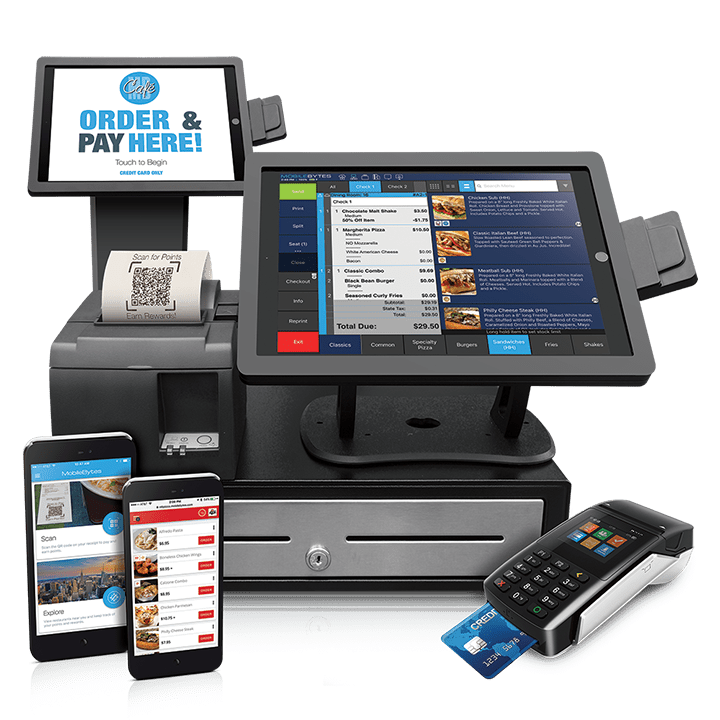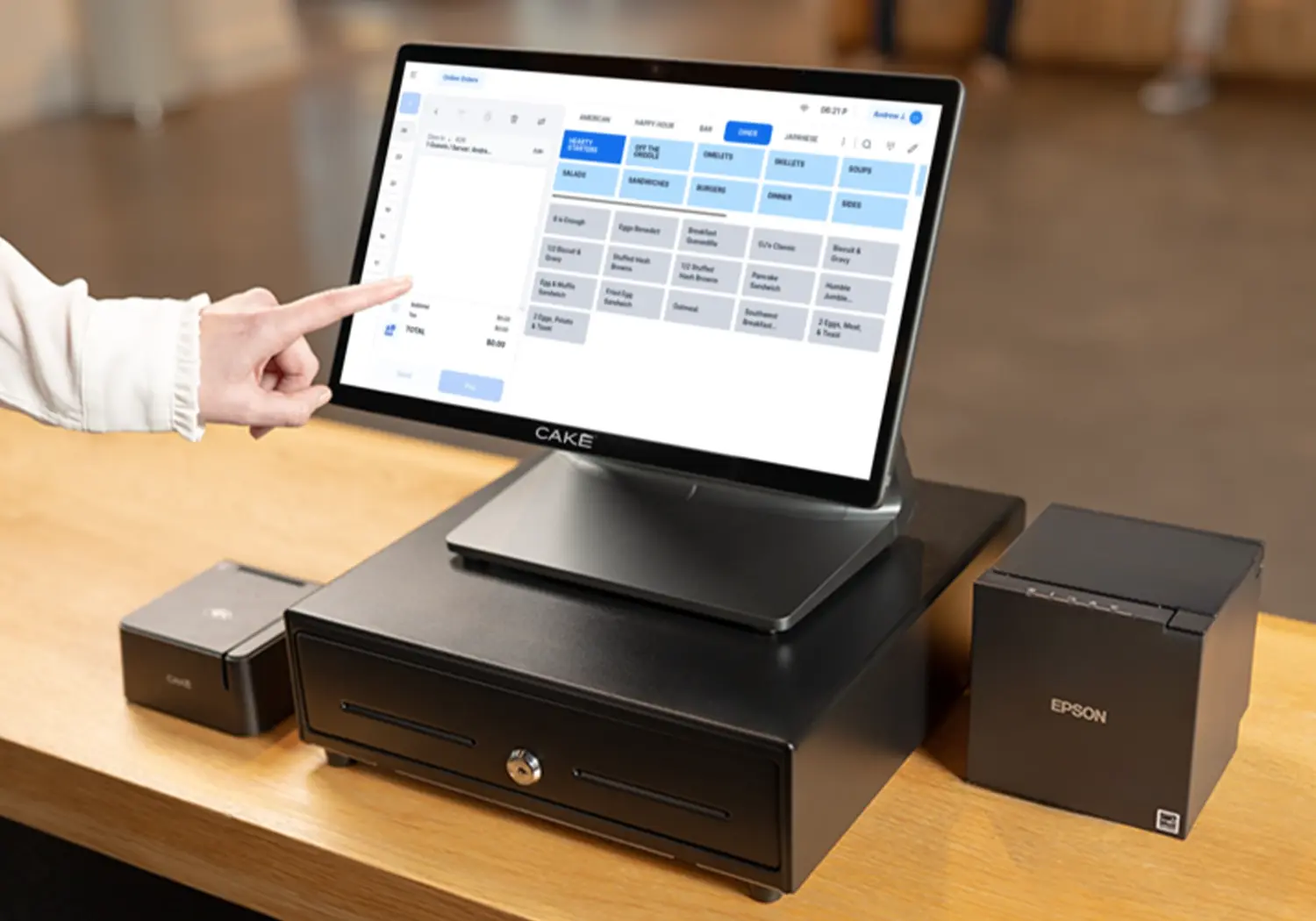Getting My Pos Machine To Work
Getting My Pos Machine To Work
Blog Article
Pos System For Small Business Things To Know Before You Get This

Pos System for Small Business: Retail Point-Of-Sale Solutions Streamline Transactions
Some Ideas on Pos Machine You Should Know

Hardware Parts of a Point of Sale System What makes a POS system tick? It's not just software; the hardware plays a starring function. Think about it as the body to the software application's brain. Without the ideal hardware, even the most sophisticated POS software is simply a quite face. Necessary POS Hardware So, what are the must-haves? Let's simplify. The main processing unit, frequently a computer system or tablet, is the heart of the operation. The screen or touchscreen display enables staff to interact with the system. A barcode scanner speeds up the checkout process. Remember the days of by hand getting in each code? The dependable invoice printer offers clients with a record of their purchase. A cash drawer keeps your money safe and organized. A card reader permits clients to pay with credit or debit cards. Diving Deeper: Beyond the Basics But wait, there's more! Depending on your business, you might need customized hardware. A restaurant may website integrate kitchen printers to relay orders, while a retail shop may utilize label printers for item tagging. Ever question how your local bakeshop quickly prints those delicious-looking labels? Choosing the Right Hardware: A Balancing Act Picking the ideal hardware isn't just about buying the most expensive equipment. It has to do with finding the sweet area in between functionality, sturdiness, and spending plan. A small company simply beginning may go with a more fundamental setup, while a high-volume retailer will require robust, high-performance devices. Is it better to buy brand-new or utilized? Consider your choices thoroughly. A brand-new system uses the newest technology and service warranty security, however a refurbished system can conserve you money. The Future of POS Hardware What does the future hold? Anticipate to see even more integration with mobile devices, biometric scanners for worker authentication, and advanced analytics control panels showed on larger, clearer screens. Think of a world where inventory is automatically updated in real-time as items are scanned-- a world where you can track your best-selling item from throughout the world. The possibilities are unlimited, and the hardware is constantly evolving to fulfill the needs of today's companies. Are you prepared to update your point of sale system?
Software Features and Capabilities: The Heart of Your POS System
Ever see an experienced barista move through a hectic early morning rush? Their secret isn't just caffeine; it's a seamless dance with their POS system. The software is the conductor of your company symphony, orchestrating everything from sales to stock. However what notes should you be listening for? What capabilities truly matter in today's market?
Stock Management: Beyond Counting Beans
Forget spreadsheets that haunt your dreams. Modern POS systems use real-time inventory tracking, signaling you when your stock of artisanal coffee beans dips precariously low. Think about it as a digital guardian angel, preventing those uncomfortable "Sorry, we're out!" moments to customers. What if you could also predict need based upon historical information? Lots of systems now offer forecasting tools, a powerful weapon versus overstocking and lost sales. This helps avoid the dilemma of running out of popular products or collecting excess stock of slow-moving items, both of which can constrain money circulation and area.
Sales Reporting and Analytics: Decoding the Data
Sales information is the brand-new gold, and your POS system is the miner. Forget feeling in one's bones how much you sold today. Dive deep into the information to reveal trends, identify your best-selling products, and understand customer habits. Which menu product pairs completely with the daily special? Which promotion resonated most with your clientele? These insights are not simply intriguing; they're actionable intelligence. Without trusted sales reporting, navigating the intricacies of company decision-making ends up being like cruising without a compass, increasing the chance of missteps and missed out on chances.
Client Relationship Management (CRM): Building Bridges, Not Walls
Remembering a routine client's name and preferred order is charming, but scaling that personal touch is difficult. POS systems with CRM abilities allow you to track client purchase history, choices, and even birthdays. Envision immediately providing a discount on their birthday-- a little gesture that fosters commitment and encourages repeat company. However there is the possible snag of bad information quality, which can lead to incorrect consumer profiles and ineffective marketing efforts.
Payment Processing: Enhancing the Deal
The checkout experience can make or break a sale. Smooth integration with various payment methods-- credit cards, mobile wallets, even copyright-- is non-negotiable. Can your system handle split payments? Does it offer secure tokenization to protect consumer information? A cumbersome payment procedure is like striking a sour note in your business symphony, potentially interrupting the whole efficiency. Making sure compatibility with progressing payment technologies and adherence to security standards are vital for maintaining customer trust and functional efficiency.
Employee Management: Keeping the Group in Sync
From clocking in and out to managing approvals and tracking efficiency, worker management includes enhance operations and enhance accountability. Is scheduling a nightmare? Many POS systems use incorporated scheduling tools, enhancing staffing levels based upon forecasted need. A typical obstacle that is typically ignored is the difficulty of integrating worker management performances with payroll systems, which can lead to mistakes and ineffectiveness in wage estimations.
Advanced Features: Leveling Up Your Operations
- Table Management: Suitable for dining establishments, this feature enables you to envision your dining space, track table status, and handle reservations.
- Loyalty Programs: Reward your finest consumers and motivate repeat service with incorporated loyalty programs.
- Online Ordering Integration: Flawlessly integrate your POS system with online buying platforms to broaden your reach.
Choosing the ideal POS system has to do with more than simply performance; it has to do with finding a partner that can grow with your business. Consider your current needs, anticipate future development, and don't be afraid to ask the difficult concerns. The right software application can change your business from a disorderly cacophony into an unified work of art.
Industry-Specific POS System Applications
Think of the regional pastry shop, dynamic with morning consumers craving fresh croissants. A generic POS system might manage deals, however can it manage complicated dishes, track component stock, or immediately adjust production schedules based on sales information? Most likely not. That is where the beauty of industry-specific POS systems shines.
Dining establishments and Hospitality
For bustling restaurants, speed and accuracy are paramount. The number of times have you seen servers juggling orders, modifications, and splitting costs, all while trying to provide exceptional service? A dining establishment POS system improves these procedures, permitting table management, kitchen area order tickets, and even online buying integration. These systems often consist of features like ingredient-level stock tracking, vital for handling food expenses and minimizing waste. Ever question why your preferred dish is in some cases unavailable? It may stem from a lack of proper stock management.
- Table Management
- Kitchen Order Tickets
- Online Ordering Integration
- Ingredient-Level Stock Tracking
Retail Solutions
Retail, with its diverse stock and customer interactions, requires a various set of tools. Picture a store clothing store struggling to keep an eye on sizes, colors, and seasonal collections using a standard checkout system. An industry-specific retail POS system uses features like barcode scanning, client loyalty programs, and detailed sales reporting. These systems can even incorporate with e-commerce platforms, offering a seamless omnichannel experience for clients. Did you know some retail POS systems can forecast future sales trends based upon historic information? Now that is powerful!
The Dangers of an Inequality
Selecting the wrong POS system can create substantial operational obstacles. A clothing store using a dining establishment POS, for example, would find it unsuitable for handling inventory with sizes and colors. The lack of correct reporting and analytics could lead to mistaken buying choices and lost revenue. The result might be comparable to attempting to fit a square peg in a round hole.
Secret Factors to consider
Choosing an industry-specific POS system needs cautious evaluation. Think of your business's special requirements and operational workflows. Does the system integrate with existing software application? Does it use the necessary reporting capabilities? Is it scalable to accommodate future growth? A well-chosen POS system is not simply a deal tool; it's a strategic property that can drive effectiveness, improve customer complete satisfaction, and eventually, improve your bottom line. Remember, it is a financial investment in your business's future, not simply an expense.
Security Considerations for Point of Sale Systems
Ever heard the tale of the mom-and-pop store that lost whatever since of a single, neglected security defect in their POS system!.?. !? It's a cautionary tale, and it highlights a critical element typically eclipsed by the appeal of elegant features and structured operations. The reality is, a POS system is only as excellent as its security. What great is a system that crunches numbers in a flash if it permits criminals to swipe consumer's information simply as rapidly?
The Vulnerability Minefield
The digital landscape is a battleground. Every POS system, despite size or elegance, is a potential target. Are you truly prepared for the threats lurking around the corner? The real pinch comes when you find that your out-of-date software has an open hole that hackers can exploit, turning your company into an unwitting accomplice in identity theft. The problem is that hackers are crafty and are always changing their techniques.
Common Security Spaces and Expert Tips
- Weak Passwords: "Password123" isn't sufficing. Usage strong, special passwords for all POS system accounts and change them regularly. Two-factor authentication is a must.
- Unsecured Networks: Your Wi-Fi resembles leaving the front door open. Protect your network with strong file encryption (WPA3 if possible) and consider a different network for your POS system.
- Outdated Software: Software application suppliers spot security holes all the time. Stopping working to upgrade resembles welcoming problem. Set up automatic updates or schedule routine upkeep.
- Worker Training: Your personnel is your very first line of defense. Train them to acknowledge phishing efforts, safeguard passwords, and report suspicious activity.
Information File Encryption: Your Guard Against the Dark Arts
Think about information file encryption as a secret code. It scrambles delicate info, like credit card numbers, making it unreadable to unauthorized users. Without file encryption, your consumers' financial details resemble sitting ducks, ripe for the picking by cybercriminals. It's not simply about securing your customers; it's about safeguarding your credibility and avoiding hefty fines.
PCI Compliance: The Rulebook You Can't Neglect
If you accept charge card, you're bound by the Payment Card Market Data Security Standard (PCI DSS) It's a set of security requirements developed to secure cardholder data. Stopping working to comply can lead to fines, penalties, and even the loss of your ability to process charge card payments. It's a headache, yes, however it's an essential one. Think of PCI compliance as the expense of doing organization in the digital age.
Consider this: every transaction processed through your point of sale is a potential entry point for destructive stars. By implementing robust security measures, you're not just securing your organization; you're securing your customers' trust and ensuring the long-term practicality of your operations. The security of your POS system isn't simply a technical concern; it's a service essential. It needs consistent watchfulness, proactive procedures, and a dedication to staying ahead of the curve.